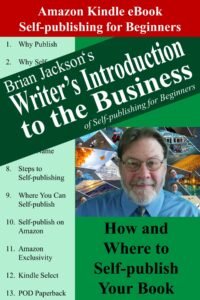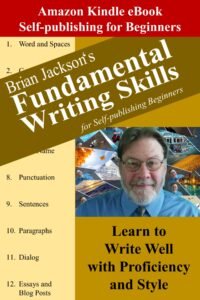Writing a book is hard.
First, you have to research and outline your book before you even begin to write. Then there’re months of writing to endure. Don’t get me wrong, I love writing. But months of it? All about a single subject? And I can do without the daily grind of writing after about a week. Then, one day, you’re finally finished. Oops, forgot to edit. There goes another week, but now you’re done. Right? Wrong! Next, there’s self-publishing. Then you’re done. Right? Have you self-published your POD paperback? But then you’re done, right? Wrong again! What about marketing? Are we done now? Remember to always write in a series. So, on to the next book!
Writing a book is hard.
Still, when I discuss writing with new writers, all of them want to write a book.
In this post, I outline why writing a book is hard, propose some appealing book writing alternatives and conclude with a recommendation to ramp up to writing your first book.
Why Writing a Book is Hard
When I ask my writing students what they want to write, to a person they respond the same: I want to write a book. Either they don’t understand that writing a book is hard or they don’t understand that there are lots of appealing writing alternatives to writing a book. So, let’s begin with a discussion of why writing a book is hard before investigating alternatives and then we’ll consider employing those alternatives to ramp up to writing your first book.
The industry standard book length is 80,000 words. This length requirement has dropped substantially (65,000 words?) with the advent of e-books and indie self-publishing. Technical guides can be even shorter, clocking in at 10,000 to 20,000 words, though it’s hard to charge more than $0.99 for books of this length.
I write at the average rate of 500 words per hour for approximately 2 hours per day when writing books. At that writing pace, I take approximately 3 months to write an 80,000 word book. That is a huge time commitment. Add to this two more factors:
- Revision, copy editing, self-publishing, marketing…
- I get nothing out of it until the entire project is complete.
Then it’s on to the next book…
I hope I’m making myself clear. Writing a book is hard. You should not take the task nonchalantly. A new writer saying they want to write a book is like a brand new driver saying they want to drive in the Indy 500 next weekend. Slow down!
This blog post is 883 words long. I had to think it up, plan it, outline it, write it, edit it and publish it. And I did it all in about two hours. Two hours is an insignificant commitment compared to the 3 months required to write a book. I suppose that’s what this discussion boils down to: commitment.
Let’s look at some book writing alternatives by level of commitment.
Some Alternatives to Writing a Book
I love writing, but there are lots of alternatives to writing a book. I recently fell in love with blogging. Why? All that’s required is 600-800 words and I’m done for the day. Bang, I’m outta here! Do I miss the plot and character development? Do I miss weaving plots and writing dialog? Yes, and yes. But there’s a problem with writing books.
Writing a book is hard.
Here are some pleasant alternatives that come without many of the hassles and constraints imposed by writing a book.
Writing a Really Good Sentence, Paragraph, Chapter…
Begin small and work your way up toward writing a book:
- Can you write a superb sentence?
- Can you link multiple sentences together to form an interesting paragraph?
- Can you write a chapter, maybe even two?
- Can you outline a book?
And just keep going. Work in larger-and-larger units until you’re finally writing a book.
Blogging
As previously mentioned, I’ve fallen in love with blogging. Short, sweet and to the point — that’s my style of writing. Consider honing your chops by writing for a blog.
Writing a Short Story
This is the fiction equivalent of writing a blog post.
I know that writing a short story is completely different from writing a novel. It comes from a different mindset and conforms to different parameters and requirements. But, writing is writing. You still need to come up with an idea, outline, write, revise, copy edit and publish. And this time it’s fiction. Yee haw! Have some fun. Limber up for the big event.
And consider this:
It’s easier to get your friends to read your short story than it is to get them to read the first 3 chapters of your book.
Also consider posting your fiction short stories as blog posts (double duty!).
Writing a Novella
A novella is kinda a waste of time, unless this is your final destination. Novellas are about 35,000 words. They’re appealing because they’re short but you can still probably charge $2.99 for them. They’re unappealing with readers.
Ramping Up to Writing Your First Book
Don’t just set out to write a book. Ramp up to writing a book by starting small and working on larger-and-larger writing projects until you end up writing a book.
Writing a Vella Episode
Check it out:
Kindle Vella: Publish an Amazon E-Book a Chapter at a Time
https://www.udemy.com/course/amazon-vella-writing-and-self-publishing-serialized-ebooks/?referralCode=22D4EA55F54ECC34E11A
I’ll see you in the classroom,
—Brian


















